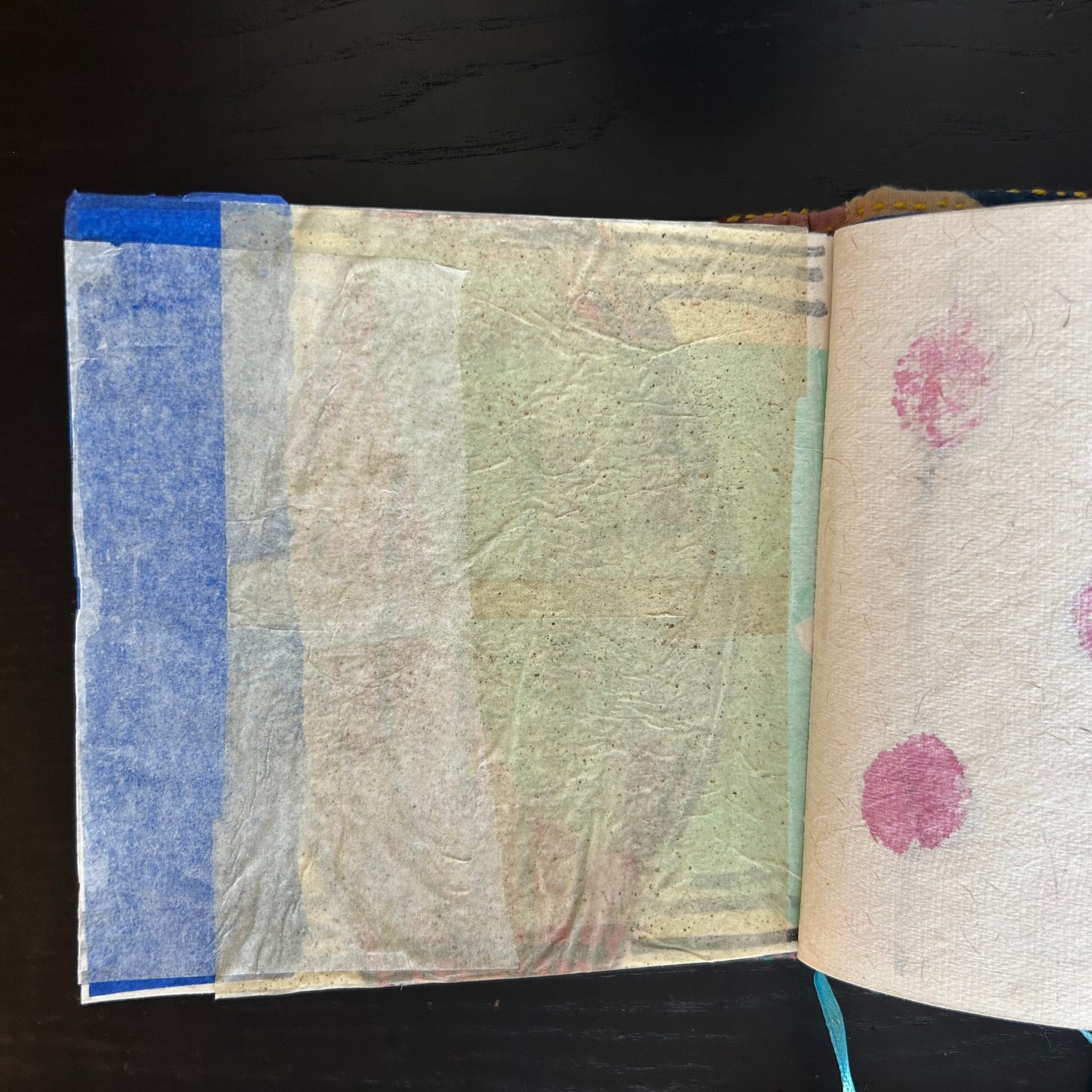Ceremony helps us delineate time. Seasonal markers, like birthdays, harvest, winter solstice, provide structure to what is an otherwise nebulous experience of waking and sleeping from birth to death. Think them as organizing principles that frames our consciousness. And like the shadow on an object, these bounds shape our lives, giving them form. The essay Second Selves by Elisa Gabbert comes to mind. Gabbert writes about hyperthymesia, the rare condition whereas people remember the events by date that occurred every single day of their lives. The internal calendar provides a structured device for sifting through and remembering all their life experiences. Imagine recalling every day, every event and feeling the joys (and the pains) of these events with the same urgency. The psychological ramifications of this are daunting. Gabbert writes: “... the importance we place on our memories are in flux. Our personalities, our selves are likewise in flux; we choose the memories that serve our going narrative at the time.”
When I was young, I would think, “I will remember this always…” I now experience time in a selective calendar that pieces together enough detail without overfilling the tank. The memory of blowing out of the birthday candles from year-to-year provides an extended sense of my life on this planet thus far … the linear organization guides me through life passages and keeps me keenly aware of my mortality. The cultural weight of the ceremony is integral to the memory and cementing the autobiographical narrative.
The Seasons of Life by Paul Andrew Reyes: I hate the cold it's so unforgiving this season we call winter. Some mornings our tears freeze and our lungs attempt to stave off crystallizing as we inhale … it has a nasty bite, our own version of life below zero in Pendleton.
One. Nine. Six. Eight. by Le’Var Howard
Thickening
smoke until stone is Black and iron
is memory. Such violence is only
spoken when true. Who chose this
language as a man means to commune …
who accepts this offering.
in its gorge bludgeoned testimony
who prayed for this ceremony,
is this violence American
Ritual
Tradition by Hannah Brophy: I left town as soon as I was able and spent several years away. Eventually about ten years later I returned home and stayed for several years. Somewhere in that time period I was invited to attend the Debutant Ball as a spectator rather than a participant. I was not expecting time to have changed my mind about the event, but I was wrong.
Wavy Gravy by Jai:
I like gravy with my biscuits.
Early in the morning,
which should be 3 AM at night
at the getting biscuit spot.
The fabled old pancake place on Powell,
where all the wild things go
to sup and slather gaining sustenance
for the coming of the new day.
We Cut (O, Tannenbaum) by Ricky Fay: The de facto launch of our holiday season and another capital-T Tradition was the annual trip past the outskirts of North Plains to select and harvest our family Christmas tree. To hear my parents tell it, as newlyweds they'd been content topurchase one from a lot in town, but once they'd had kid(s), something more seasonally festive was called for. So we'd bundle up against the cold — which always felt more extreme in the countryside for some reason — and venture out to rural pastures, for what felt like the taming of the wild frontier.
A Stroll Down Memory Lane by Sarah Tonin
I remember strolling through this same market when I was younger. I held a mug of cocoa rather than Gluhwein back then, and I wasn't tall enough to see through some of the windows of the shops, but the same wonder and excitement that fascinated me then, filled me now. I can hear a choir of voices singing from the open windows of the building that surrounds the plaza, and somewhere out of sight, a live band plays music to accompany them.
A psychiatrist in our office building stopped to chat on a sunny day and we found ourselves in a conversation about mortality. He said he didn’t know how he could spend a life sentence in prison. It is an awful thing to imagine, and it as a reality for our writers who are aging in prison. A few have spent time on death row (which was dismantled by Governor Kate Brown in 2023.) During those periods, these men lived in isolation confined 23 hours a day. Each day and night stretched marked by meals and short periods accessing the yard. This time experience, in contrast to hyperthymesia, lacks the texture of daily events that hold time. For folks who have lived in these confined situations, they rely on an internal discipline to make meaning of this time. Rituals like reading or writing in a journal — endless sets of burpees hold the space. And memories are held, turned over and over. They learn time. Five Minutes R. Miranda writes: “Time lacks logic. It is magical — transcendental. It is the wayward child who simply refuses to follow the rules.” | TDS



Unfortunately LeVar Howard's piece is not accessible. Great topic this week.